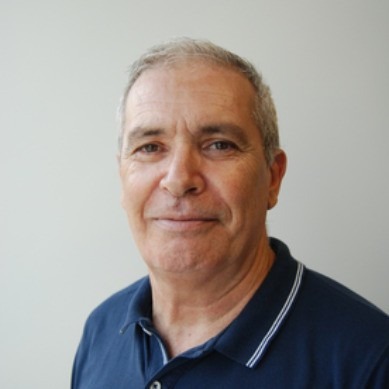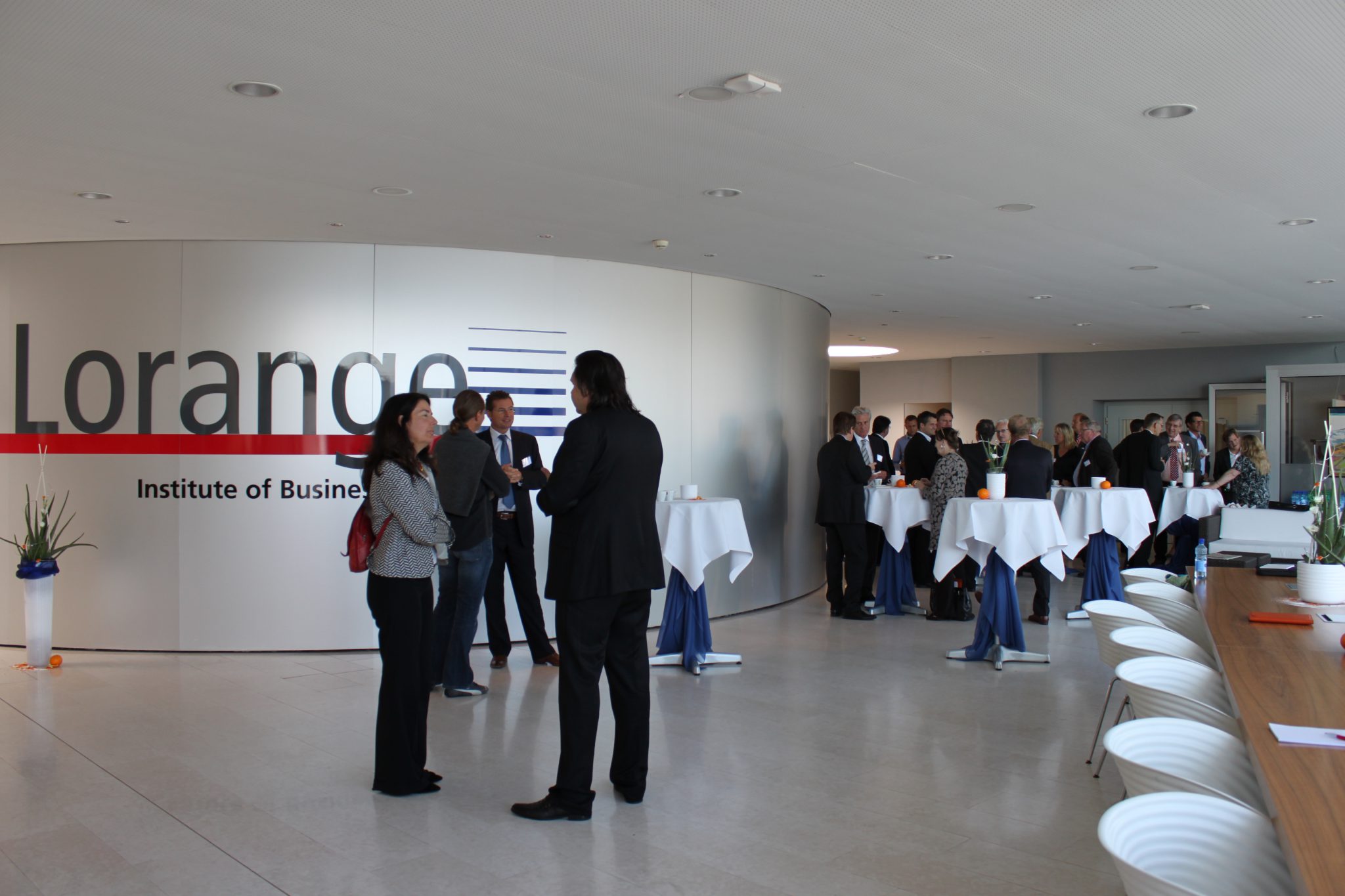
As the global economy is struggling to get back on its feet, the awareness of the shortcomings of the previous business model is permeating the minds of key decision makers. Today, a rapidly growing number of companies are spending an increasing amount of resources on improving their ways of making their businesses a success. Despite this growing awareness, there are still only a minority of organisations (meaning companies, NGOs and governments) that have fully embraced the concept of Corporate Social Responsibility (CSR).
Believing that business ethics and sustainability are key to the future business model, Dr Peter Lorange organised the 6th Zurich Business Forum, held at the Lorange Institute of Business Zurich from 15 – 16th March, to further explore how these concepts would interact in future business models.
Some of the presentations built the argument that the current business model is just not sustainable and that even in the short term, we will begin to see changes to the environment that locally will have a severe impact on people’s living conditions. Emphasising the argument, the photo of our blue planet floating in space was shown and the phrase “Spaceship Planet Earth” was explained: the Earth is just like a spaceship. There is only that and its crew. There is not going to be a new shipment of resources, so we need to make do with what we have. Facing a growing population, the “spaceship” will soon run out of resources if we don’t change our way of doing things.
As the Forum revealed, there are ways we can change our approach to doing business and at the same time continue to have successful companies. The realisation that the need for a company to be profitable must be respected if it is to change its modus operandi ran strongly throughout all the presentations. Fortunately, the Forum gave numerous examples of how to mix the demands of the environment with the demands of companies.
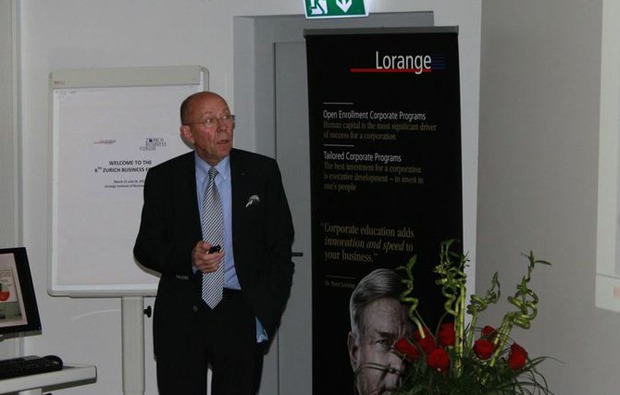
One such example was given by Claude Hauser, the former Chairman of the Board of Directors at Migros (picture on the left). Today, Migros has annual group sales worth about USD 26bn and has had a keen focus on ecofriendly products for a long time, with laboratories staffed by the best scientists in the country in order to maintain a high level of food safety. Therefore, the retailer was in a great position to develop and grow the sustainability aspects of its operations as they became more pertinent to the public. Though the process has been anything but simple, in 2020 Migros will be selling only sustainable fish and even today, an increasing number of products stem from suppliers respecting one of the following sustainability standards: MSC (sustainable fishing), ASC (sustainable aquaculture), FSC (sustainable forestry), Max Havelaar (safe production) and Terrasuisse (Migros’ sustainable products standard). In addition to this commitment, Migros has played an active role in sustainability and CSR fora such as BSCI and GSCP.
Claude Hauser further revealed an important insight into the success of the company: Migros is not in business to make excessive amounts of profit and, therefore, pays its CEO “only” about CHF 850 000 annually, with no bonuses. This seems to be a rewarding philosophy as about 50% of all families in Switzerland shop at Migros with Swiss families using as little as 8% of the household budget on food.
The Forum also heard presentations from other sector leading companies such as Swiss bank UBS and travel and destination manager Kuoni, both of which have been working successfully with CSR and sustainability for about a decade. Though these companies operate in other sectors and therefore face different issues to Migros, they are still very big for-profit companies. At the same time, despite their important work in the field, new ideas and approaches often come from smaller companies.
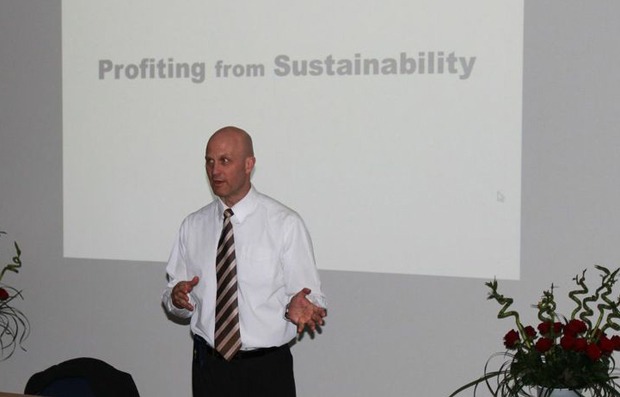 One such company is the CIPS Foundation (The Center for Industrial Productivity and Sustainability) which is a non-profit education based organisation. Defining sustainability as ‘the capacity to continue into the long-term’, CIPS’s work pivots around the issue of waste reduction: “Waste is omnipresent in every business system – and waste is a wound from which money bleeds" said Jonathan T. Scott (picture on the right). In the presentation, Caterpillar was used as a case of good practice since part of the company’s recycling program has introduced a buy-back policy. Caterpillar refunds 40% of the original price of the equipment if the client returns the used machinery and then reuses the returned parts when building new equipment. Thus, the company uses each piece of machinery 3 times before it is taken out of use permanently, a process which in the US has led the company to open three more factories where equipment is disassembled.
One such company is the CIPS Foundation (The Center for Industrial Productivity and Sustainability) which is a non-profit education based organisation. Defining sustainability as ‘the capacity to continue into the long-term’, CIPS’s work pivots around the issue of waste reduction: “Waste is omnipresent in every business system – and waste is a wound from which money bleeds" said Jonathan T. Scott (picture on the right). In the presentation, Caterpillar was used as a case of good practice since part of the company’s recycling program has introduced a buy-back policy. Caterpillar refunds 40% of the original price of the equipment if the client returns the used machinery and then reuses the returned parts when building new equipment. Thus, the company uses each piece of machinery 3 times before it is taken out of use permanently, a process which in the US has led the company to open three more factories where equipment is disassembled.
After two days of inspiring workshops and presentations, it was perfectly clear that Peter Lorange had managed to gather together a group of people that were pushing forward in each of their fields the innovation needed in order to change the way we do business in the future. Though most business people do not think of themselves as idealists, the energy and enthusiasm that these people demonstrated during the Business Forum was close to being defined as that. Merely describing them as innovative does not seem to do justice to the skills, joy and determination that these people put into their work. Describing why running a business is more than just making profits Peter Druker, a management guru, has been quoted as saying: “Profit for a company is like oxygen for a person. If you don’t have enough of it, you’re out of the game. But if you think your life is about breathing, you’re really missing something.” The Lorange Institute of Business connected this philosophy to reality by demonstrating its practical applications and left an impression on the participants that the future is not necessarily as bleak as often described.
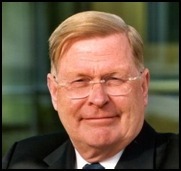
Dr. Peter Lorange
Peter Lorange has been President of Lorange Institute of Business Zurich since the end of July 2009.
He was President of IMD from July 1993 until April 2008. He is Professor of Strategy and was the Kristian Gerhard Jebsen Chair of International Shipping.
Born in Norway, he holds a MA in Operations Management, Yale University and a DBA, Harvard Business School.
Other articles by Jakob Thiemann on CSR:
Abusive salaries: a CSR Challenge
"Oui" to cap on abusive payments
Is efficient resource management good business?




 One such company is the
One such company is the 
